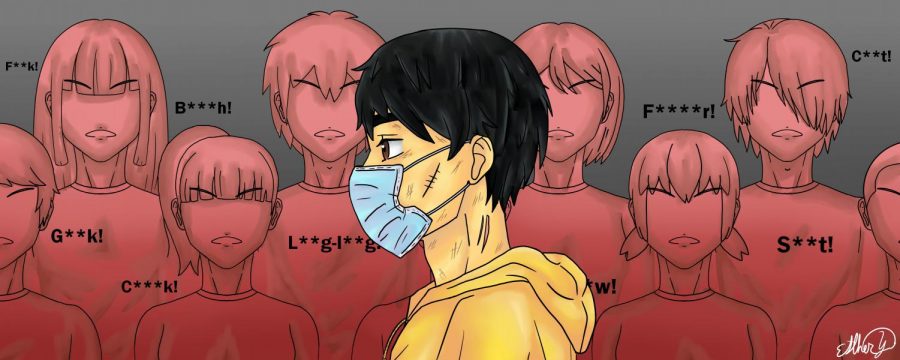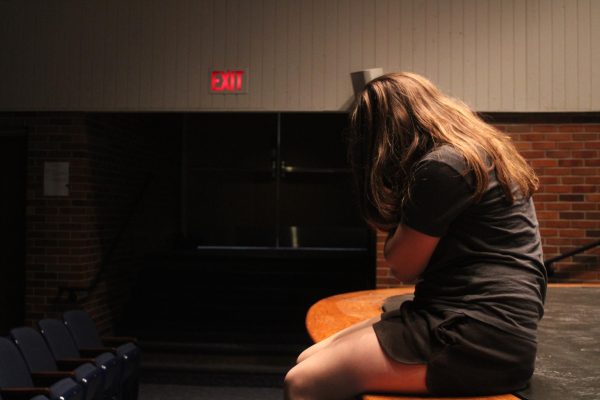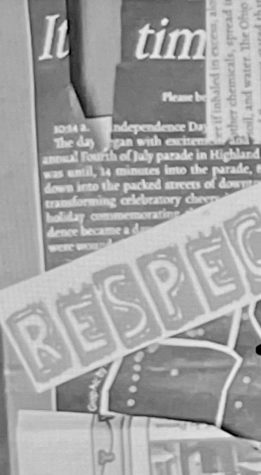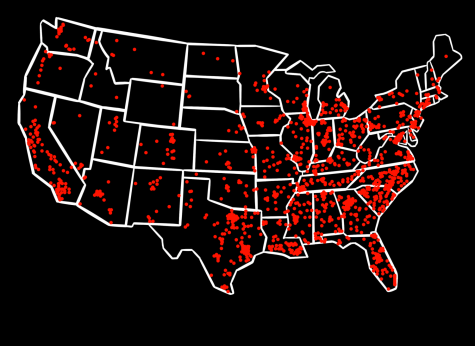Anti-AAPI attitude calls for action within our community
April 23, 2021
“The shooter had a bad day.” Security guards’ “closed-door policy.” The “Chinese virus.” These verbal insults, harassment and physical attacks plague Asian American and Pacific Islander (AAPI) communities and fuel hate crimes against them.
As the days move forward, hate crimes continue to become more pervasive and violent, forcing AAPI around the world, and in our own community, to feel apprehensive when leaving the house because of their ethnicities.
South’s own students and faculty have experienced harassment because of the rise of anti-AAPI sentiment. Hong Wu, Chinese teacher and club advisor, was called a “Korean bitch” in a public space (Wu is Chinese) and, although a people person, she can no longer make eye contact with people at stop signs because she is afraid of them shooting her mean looks. Sophomore Althiamay Villanueva, Filipino club founder, also experienced hateful remarks from strangers and even past friendships.
“One time, someone was making fun of my eyes because I have small eyes,” Villanueva said. “[My friends] were talking about how I’m weird because I don’t use utensils. I grew up eating with my hands and that’s part of my culture.”
Nearly a year after posting its first editorial covering anti-AAPI attitude, titled, “Anti-Asian sentiment demands for appropriate language” [June 12, 2020], The Oracle Editorial Board, once again, encourages South students to equip themselves with the tools to respond to and understand when acts of racism are happening. In educating and acknowledging the current state of anti-AAPI sentiment, the Editorial Board hopes students will understand the significance of how words can only do so much and must be paired with actions to fight against these hate crimes.
Approximately 40 percent of U.S. adults believe “it has become more common for people to express racist views toward Asians since the pandemic began,” according to Pew Research. The “Chinese virus,” for example, is a derogatory phrase that is emblematic of the heightened prejudices against AAPI as a result of the pandemic. Although not as universal, but nonetheless demeaning, junior Stephen Woo explained how microaggressions such as these can be heard within the walls of South.
“You hear these comments about your appearance, about how we look, how we sound,” Woo said. “Whenever somebody makes a racist comment, even if it’s overly used like those things, it still adds up. The micro-racism adds up.”
In this past year alone, Stop AAPI Hate National Report has received 3,795 reports of anti-Asian hate incidents from March 19, 2020 to Feb. 28, 2021. As incidents of AAPI hate crimes continue to be reported everyday, junior Sydney Cordero, Filipino club secretary, is continually aware of the fear she feels on a daily basis.
“None of these [more major events] have really occurred [nearby] but still, I’m more anxious and fear more for my family,” Cordero explained. “I know it is not normalized but a lot of people see Asians as one specific type of person, especially in appearance. It’s really hard to feel like we’re safe.”
Especially with recent events like the Atlanta spa shootings, where most victims were of Asian descent, and the brutal attack on an elderly Asian woman, it is hard to not be overwhelmed by fear, shock and grief, English Teacher Annie Kim explained. Not only that, but Jay Baker, captain of Cherokee county sheriff’s office, claimed the shooter was simply having a bad day, when the shootings were clearly racially motivated.
Wu sees these events as an opportunity to model how to make a change. In leading Chinese club, she works tirelessly on promoting awareness at South. Other ways to become more involved in the fight against AAPI violence are to be informed (by reading news articles), be civically engaged, donate (if applicable) and so much more, according to Stop AAPI Hate.
“At Chinese Club, we’re planning to make posters, make videos, collaborate with other clubs to promote the awareness of what is going on and that [the violence] is not okay,” Wu said.
Kim stands by an important philosophy about how our words matter and the language we use can either empower or marginalize people. Considering the Asian-American community’s presence in the district, Kim believes teachers and students of all races should raise more awareness and educate people about implicit biases in order to prevent tragic events from happening across the country.
“I would like to see both teachers and students participate in anti-bias work to help each other navigate these challenging conversations about racism and microaggressions,” Kim explained. “[This would] foster a more inclusive school environment and be able to have healthy conversations with an open mind.”
The Oracle Editorial Board commends South administration for creating an overall inclusive environment; however, it is important for students to begin to take action against acts of racism. Cordero, in particular, thinks it is important for students to take initiative in understanding the situation and going above and beyond in ensuring their Asian American peers are in a good mental state.
“Even if it’s just reading an article or reading the social media posts that your Asian peers have posted, it is still a great [start],” Cordero said. “I think it’s definitely a time where you need to make sure that [your friends are] okay. Just to check in on them every once [in a while].”
The Editorial Board urges the South community and its students to come together in order to educate others about the struggles AAPI are facing and act to provide support for one another.
“If we are going to tackle these overwhelming issues of racism and discrimination, we must confront them together as a community,” Kim explained. “We all have a role to play by speaking up, [taking action] and supporting each other.”












